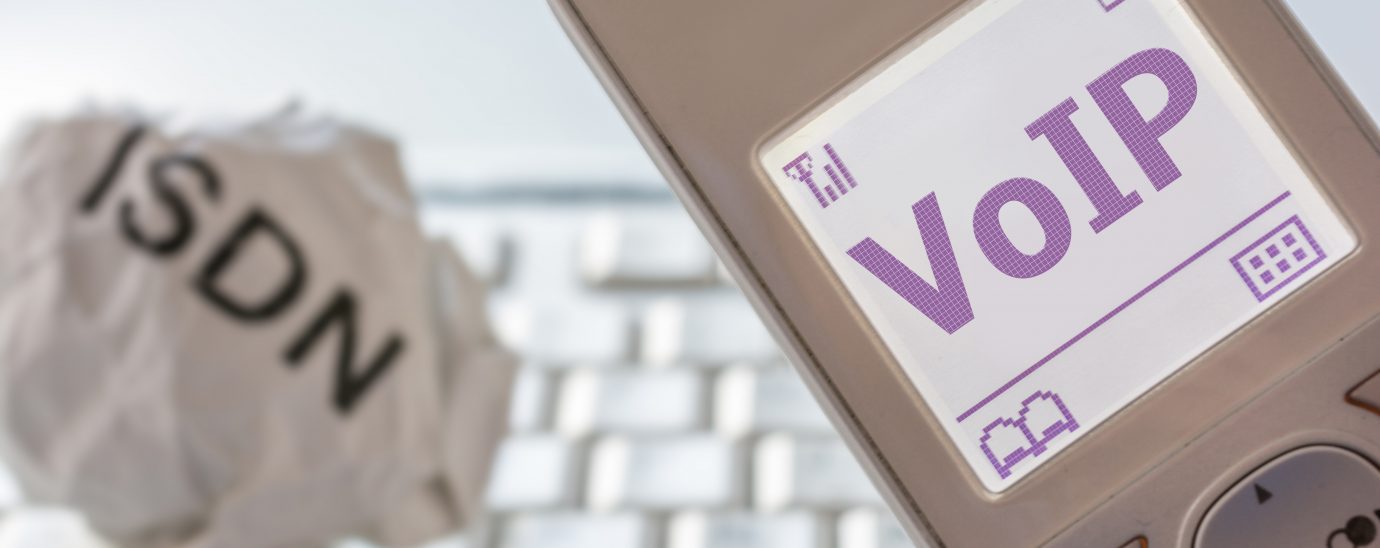Switch on to the switch off: 4 ways your business can prepare for the ISDN shutdown

The ISDN network began shutting down in 2020 to turn the network off entirely in 2025. However, despite warnings, businesses are still failing to get prepared to ensure services aren’t switched off, and major disruption is caused. In this piece, Spitfire Network Services’ Sales Director Dominic Norton looks at the four ways businesses can get prepared.
Businesses across the UK are still in the process of evaluating which working models best suit their operations and employees. Some are back in the office full time. Some have applied the hybrid approach. Some are remaining fully remote. What’s clear is that there is no one-size-fits-all.
However, with new working models comes technological challenges – areas around connectivity and effective communication top many lists. Then when you add in the Analogue and ISDN Switch Off, which is well underway, many businesses have a sense of unpreparedness for the months ahead. As a result, many businesses are asking how exactly they can get the transition process started that will help avoid disruption to their business as they adjust to new working models.
Switch to VoIP (Voice above internet protocol)
If your organisation is still using an analogue or ISDN telephone number service, then you will need to move to VoIP and subscribe to a SIP service. One way of doing this could be via a Cloud PBX although there is always the possibility that your existing phone system can use SIP trunks so it’s a good idea to check. Once you start using VoIP, all your telephone calls are effectively run over IP instead of over the old-fashioned analogue network, highlighting one particular challenge – call quality. IP telephony can be hamstrung by poor call quality. However, if you choose carefully when considering options for your data circuit, good quality calls are within reach. Your data circuit should be able to deliver performance criteria to a level that will ensure consistently good quality calls – a must for any business these days in the face of fewer face-to-face meetings and an increasing reliance on the phone/internet to communicate.
Look at broadband options
The selection of broadband shouldn’t be particularly problematic. Essentially, if your business can access ‘full fibre’ or Fibre to the Premises (FTTP) then this represents the best way forward for your broadband needs. If FTTP is not available for your business, then you can investigate SOGEA. This service (Single Order Generic Ethernet Access) allows providers to order broadband without a phone line, so your business basically gets a FTTC Fibre Broadband product without telephone line capability. It operates as an all-in-one service whereby your business would pay a single monthly rental for Internet access.
Voice quality matters
We are passionate believers in voice quality. Remember, there is a massive downside to poor quality communication – not only is it frustrating for your people (users), but potential customers will be put off, possibly causing reputational damage and, most certainly, negatively impacting productivity. Our best advice here is that businesses adopt quality of service (QoS) as a mantra, which should be present in all decision-making. Work with a service provider that truly understands VoIP in all of its myriad ways – that means an in-depth knowledge of everything from the actual handset through the network itself. All these elements are important. At the end of the day, call quality on VoIP will certainly be determined by the condition of your broadband line and to what degree it performs. If your business suffers from sluggish internet or frequent dropouts, your phone calls will be adversely affected, giving rise to the problems outlined above. It is a very important decision so choose carefully. In addition, you could also investigate supplementary technologies that enhance QoS on Broadband. An example of such technology is Real Time QoS (RTQoS), typically required in a network where time-critical applications are being supported.
Other devices and extra power sockets
Does your business use devices such as PDQ machines, for example? They too may use analogue lines (which will disappear) and your best bet here is to approach the device manufacturer or provider for additional information. In all likelihood, your business might need to upgrade the device to connect to an IP network or to a 4G SIM. Does your business have any security alarm lines? If so, then you can investigate a device called Essential IP by Openreach that enables all alarm systems to communicate over IP. It is extremely versatile, allowing for connection via ethernet cable, Wi-Fi or 4G. And don’t forget the power sockets! Old school analogue telephones work because they get their power from the actual telephone line. However, when you install all-IP services, each and every device needs power. Make sure you have enough power sockets in advance.
READ MORE:
- Return to the office? How you set up should be the real question
- Four Business Telecoms Trends that will Revolutionise the Mobile Workforce
- 5G: Pushing the world forward through emerging technologies
- What does 5G mean for the future of contact centres?
Make sure that your business is prepared for the big analogue and ISDN network switch off coming in 2025. New working models have certainly kick-started the process for many organisations. My advice is to act now if you haven’t begun your business transformation journey – you face being left behind if you don’t.
For more news from Top Business Tech, don’t forget to subscribe to our daily bulletin!
